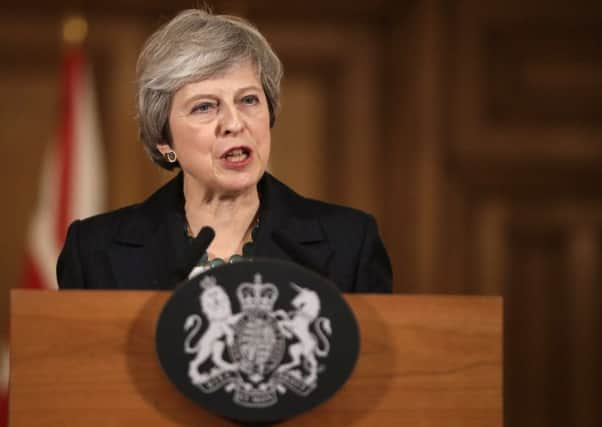Brexit: Theresa May is bending UK to her will '“ leader comment


Theresa May promised to deliver “strong and stable” government, then suffered repeated episodes of the wobbles.
But – amid the resignations of Boris Johnson, two Brexit Secretaries and various other members of the Government; the failed attempt to oust her by Jacob Rees-Mogg’s band of hardcore Brexiteers; and Jeremy Corbyn’s weak attempt to hold a vote of no confidence in her leadership – she appears to have out-manoeuvred her opponents.
Advertisement
Hide AdAdvertisement
Hide AdYesterday saw the UK Government ramp up its preparations for a no-deal Brexit with plans to put thousands of troops on standby among other measures. “Project Fear!” was the cry, though for once it was not from hardcore Brexiteers, but the Remain camp. Liberal Democrat leader Vince Cable claimed May was trying to “scare MPs, businesses and the public” and “irresponsibly trying to run down the clock so that the only option is to support her discredited deal”.
This seems to be a fairly accurate summation of the Prime Minister’s strategy, but it’s also a statement of two basic truths: a no-deal Brexit is something we should be afraid of and time is running out.
The SNP yesterday accepted there was no longer time for a soft Brexit with its Commons leader, Ian Blackford, saying “that ship has now sailed” and the party will now seek to hold a second EU referendum.
However, it is the UK Government that controls the agenda and the timetable. If there is no majority in the Commons to remove Theresa May, her unpopular Brexit deal will be put to the vote just two months before ‘B-Day’.
Remainers might vote against it in the hope May will shift to the second referendum camp and that the public will then change its mind, but this would be a gamble. Surely only the most reckless of Brexiteers would vote against May’s plan in favour of a no deal, particularly as this would risk no Brexit. So, albeit reluctantly, Remainers and hardcore Brexiteers may well find themselves trooping into the Government lobby purely out of fear of the alternatives.
This coalition of the unwilling would be a tactical victory for May, but it is unlikely to end well. If predictions about Brexit’s damage to the UK economy prove correct, public discontent after 29 March is likely to grow. Forcing people to bend to your will, forcing the UK into a situation that few actually want, may be strong, but it risks producing a worryingly unstable situation.
